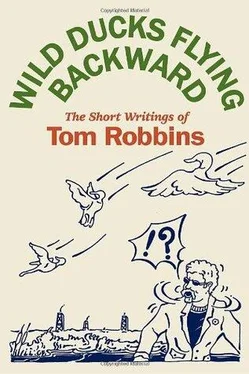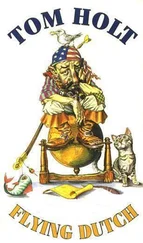Kissing is the supreme achievement of the western world. Orientals, including those who tended the North American continent before the land developers arrived from Europe in the 16th century, rubbed noses, and millions still do. Yet, despite the golden cornucopia of their millennia — they gave us yoga and gunpowder, Buddha and pasta — they, their multitudes, their saints and sages, never produced a kiss. (Oh, sure, the Rig Veda, a four-thousand-year-old Hindu text, makes reference to kissing, but who knows the precise nature of the activity to which the Sanskrit word alludes? Modern Asians, of course, have taken up kissing much as they’ve taken up the fork, though so far, they haven’t improved upon it as they usually do with those foreign things they adopt.)
Kissing is the flower of the civilized world. So-called primitives, savages, Pygmies, and cannibals have shown tenderness to one another in many tactile ways, but pucker against pucker has not been their style. Tropical Africans touched lips, you say? Quite right, many of them did, as did aboriginal peoples in other parts of the world. Ah, but although their lips may have touched, they did not linger. And let’s admit it, the peck is not much more than a square wheel, sterile and slightly ominous. With what else did Judas betray the Big Guy but a peck: terse, spit-free, and tongueless?
Kissing is the glory of the human species. All animals copulate but only humans osculate. Parakeets rub beaks? Sure they do, but only little old ladies who murder schoolchildren with knitting needles to steal their lunch money so that they can buy fresh kidneys to feed overweight kitty cats would place bird billing in the realm of the true kiss. There are primatologists who claim that apes exchange oral affection, but from here, the sloppy smacks of chimps look pretty incidental: at best, they’re probably just checking to see if their mates have been into the fermented bananas. No, arbitrary beast-to-beast snout nuzzling may give narrators of wildlife films an opportunity to plumb new depths of anthropomorphic cuteness, but on Aphrodite’s radar screen, it makes not a blip.
Psychologists claim that talking to our pets is a socially acceptable excuse for talking to ourselves. That may cast a particularly narcissistic light on those of you who kiss your pets, but you shouldn’t let it stop you. Smooch your bulldog if you’re so inclined. Buss your sister, your uncle, your grandpa, and anybody’s bouncing baby. No kiss is ever wasted, not even on the lottery ticket kissed for luck. Kiss trees. Favorite books. Bowling balls. Old Jews sometimes kiss their bread before eating it, and those are good kisses, too. They resonate in the ozone.
The best kisses, though, are those between lovers, because those are the consequential ones, the risky ones, the transformative ones, the ones that call the nymphs and satyrs back to life, the many-layered kisses that we dive into as into a fairy-tale frog pond or the murky gene pool of our origins.
The fact that we enjoy watching others kiss may be less a matter of voyeurism than some sort of homing instinct. In any case, it explains the popular appeal of Hollywood and Paris. Who can forget the elastic thread of saliva that for one brief but electrifying second connected Yvonne De Carlo to Dan Duryea in Black Bart ? And didn’t Joni Mitchell’s line “in France they kiss on Main Street” inspire hundreds of the romantically susceptible to pack their breath mints and head for Orly?
A final thought: beware the man who considers kissing as nothing more than duty, a sop to the “weaker” sex, an annoyingly necessary component of foreplay. That man has penis plaque in his arteries and will collapse under the weight of intimacy. Send him off to the nearest golf course while those of us who are more evolved celebrate the unique graces of the kiss:
No other flesh like lip flesh! No meat like mouth meat! The musical clink of tooth against tooth! The wonderful curiosity of tongues!
Playboy, 1990
I’m no disciple of Shree Bhagwan Rajneesh. I am not a disciple of any guru. I am, in fact, not convinced that the Oriental guru system is particularly useful to the evolution of consciousness in the western world (although I’ll be the first to admit that what is most “useful” is not always what is most important). The very notion of guruhood seems at odds with the aspirations of the passionate individualist that I profess to be, and I’d be only slightly more inclined to entrust my soul to some holy man, however pure, than to a political committee or a psychiatrist.
So, I am no sannyasin. Ah, but I recognize the emerald breeze when it rattles my shutters, and Bhagwan is like a hard, sweet wind, circling the planet, blowing the beanies off of rabbis and popes, scattering the lies on the desks of the bureaucrats, stampeding the jackasses in the stables of the powerful, lifting the skirts of the pathologically prudish, and tickling the spiritually dead back to life.
Typhoon Bhagwan is not whistling Dixie. He is not peddling snake oil. He won’t sell you a mandala that will straighten your teeth or teach you a chant that will make you a millionaire. Although he definitely knows which side his bread is Buddha-ed on, he refuses to play by the rules of the spiritual marketplace, a refreshing attitude, in my opinion, and one that stations him in some pretty strong company.
Jesus had his parables, Buddha his sutras, Mohammed his fantasies of the Arabian night. Bhagwan has something more appropriate for a species crippled by greed, fear, ignorance, and superstition: he has cosmic comedy.
What Bhagwan is out to do, it seems to me, is pierce our disguises, shatter our illusions, cure our addictions, and demonstrate the self-limiting and often tragic folly of taking ourselves too seriously. His pathway to ecstasy twists through the topsy-turvy landscape of the Ego as Joke.
Of course, a lot of people don’t get the punchline. (How many, for example, realized that Bhagwan’s ridiculous fleet of Rolls-Royces was one of the greatest spoofs of consumerism ever staged?) But while the jokes may whiz far over their heads, the authorities intuitively sense something dangerous in Bhagwan’s message. Why else would they have singled him out for the kind of malicious persecution they never would have directed at a banana republic dictator or a Mafia don? If Ronald Reagan had had his way, this gentle vegetarian would have been crucified on the White House lawn.
The danger they intuit is that in Bhagwan’s words, as in the psychedelic drugs that they suppress with an equally hysterical bias, there is information that, if properly assimilated, can help to set men and women loose from their control. Nothing frightens the state — or its partner in crime, organized religion — so much as the prospect of an informed population thinking for itself and living free.
Freedom is a potent wine, however. Its imbibers can take a long while to adjust to its intoxications. Some, including many sannyasins, never adjust. Patriotic Americans pay gassy lip service to their liberty, but as they’ve demonstrated time and time again, they can’t handle liberty. Whether more than a fistful of Bhagwan’s emulators can handle it has yet to be determined. It likely will take something more eschatologically dramatic than the unorthodox wisdom of a compassionate guru to dislodge most modern earthlings, be they seekers or suckers, from our age’s double helix of corruption and apathy, let alone to facilitate the human animal’s eventual escape from the web of time.
Meanwhile, though, we yearn for sound advice, and Bhagwan’s discourses ring a lot truer than most. He has the vision to see through the Big Mask, the guts to express that vision regardless of the consequences, and the love and humor to place it all in a warmly mischievous perspective. Moreover, here is one teacher who is honest enough, illuminated enough, alive enough to openly enjoy the physical world while simultaneously pointing out its ubiquitous traps and trickeries. Zorba the Buddha!
Читать дальше












